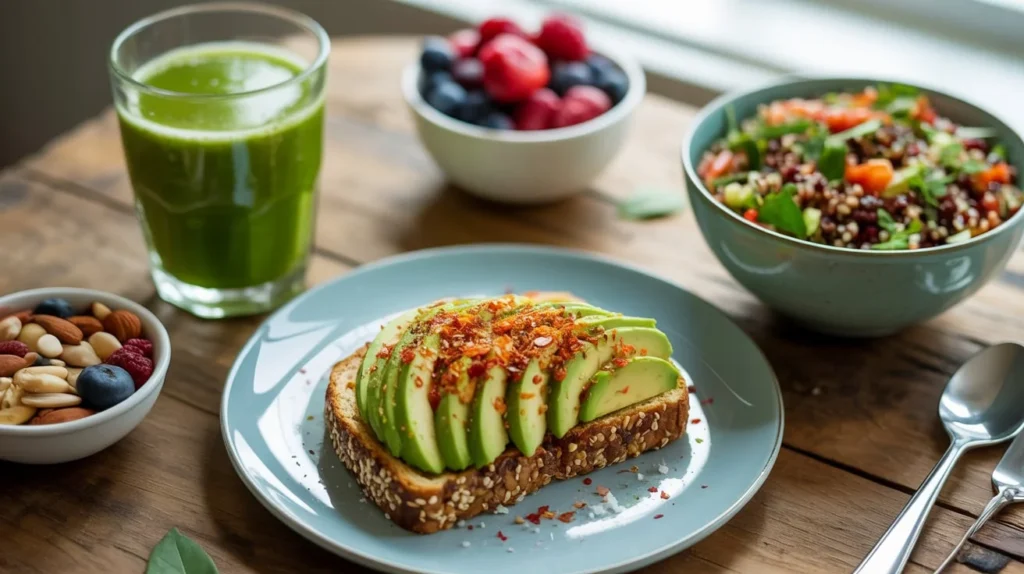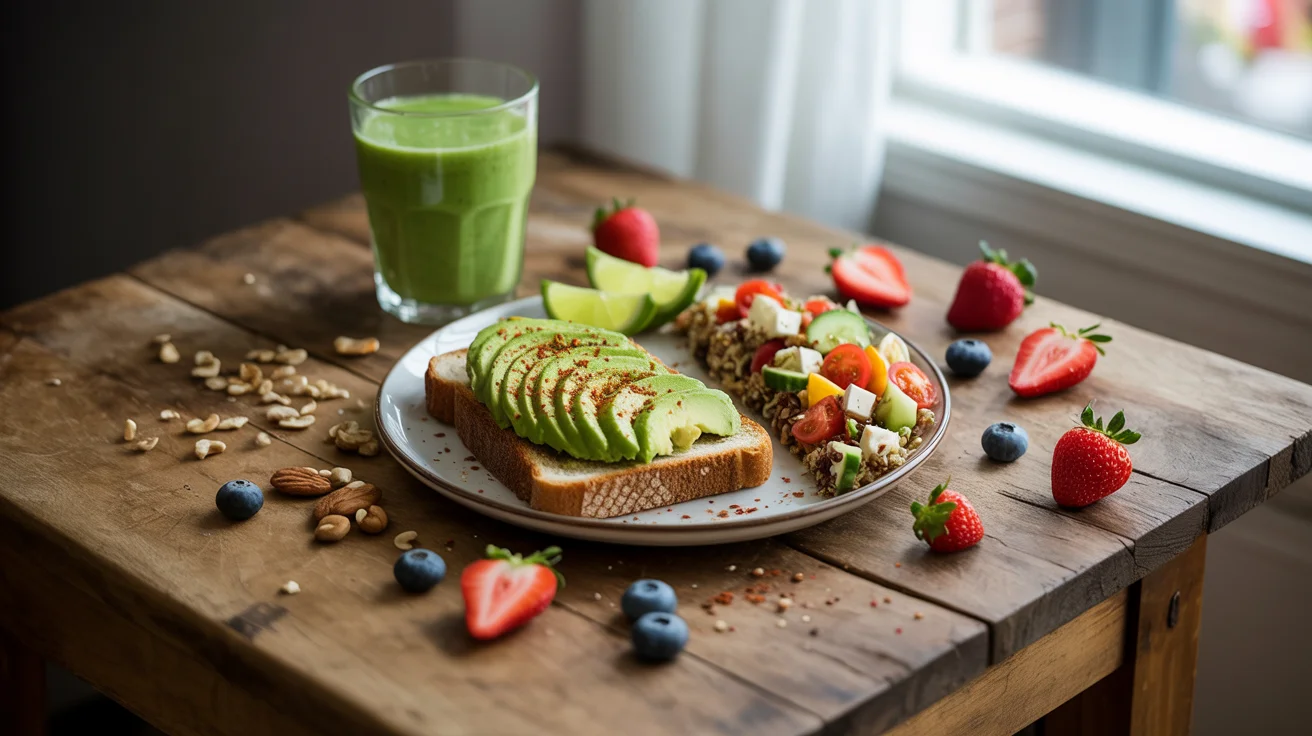Lifestyle Food: A Healthier Way to Eat and Live
Today, food is more than just fuel; it’s a reflection of our lifestyle. The concept of lifestyle food has evolved as people seek meals that align with their daily routines, fitness goals, and overall well-being. Whether you’re trying to lose weight, build muscle, manage stress, or simply live cleaner, what you eat matters more than ever.
Lifestyle food is all about eating intentionally. It’s not just about diets or trends, it’s about selecting foods that align with your personal goals, energy needs, and mental well-being. From plant-based meals to high-protein snacks, lifestyle food encourages balance, simplicity, and wellness in everyday eating habits.
This guide explores how lifestyle meal works, who they’re for, and how you can start making better meal choices that match your lifestyle, without feeling overwhelmed.
What Is Lifestyle Food and Why Does It Matter?
Lifestyle food refers to meal choices made with a specific lifestyle or health goal in mind. It focuses on aligning your diet with your lifestyle, whether you’re active, sedentary, busy, or mindful of your eating habits. This approach to eating extends beyond calories to consider the quality, timing, and purpose of your meals.
By shifting focus from short-term diets to sustainable food habits, lifestyle meals help people maintain their health goals without stress. It’s flexible, supportive, and designed to evolve as your needs change. Whether you’re vegan, paleo, gluten-free, or just aiming for balance, lifestyle food adapts to you.
Types of Lifestyle Food for Different Goals
Everyone has unique needs. That’s why a lifestyle meal isn’t one-size-fits-all. There are different types designed for specific health or activity goals. From clean eating for detox to protein-rich foods for athletes, each type serves a purpose.
Common Types of Lifestyle Food
- Fitness-Focused Meals: High protein, low-carb combinations to build muscle and aid recovery
- Plant-Based Options: Rich in fiber, antioxidants, and great for heart health
- Weight Management Foods: Calorie-controlled meals with balanced macros
- Mindful Meals: Designed for slow eating, portion control, and stress reduction
- Allergy-Friendly Choices: Gluten-free, dairy-free, or nut-free meals for sensitive individuals
How Lifestyle Food Helps Busy Professionals
People with demanding schedules often skip meals or rely on processed snacks as a substitute. Lifestyle meal helps professionals fuel their days without compromising on nutrition. Meal prepping, ready-made healthy boxes, and wise snack choices are part of this trend.
Balanced eating helps improve focus, energy levels, and immune health. When food supports your routine, you stay productive and avoid burnout. For office workers and entrepreneurs, clean energy through real food is a real game-changer.
Wise Choices for a Health-Driven Lifestyle

Healthy doesn’t have to be boring. Choosing the right foods for your body and routine can be simple and delicious. The key is selecting whole foods with clean ingredients and balanced macros. Avoid overly processed options, sugary snacks, and empty calories. Instead, go for meals that include protein, complex carbs, healthy fats, and essential vitamins.
Foods That Fit a Healthy Lifestyle
- Grilled lean meats and fish
- Whole grains like quinoa or oats
- Leafy greens and colorful vegetables
- Nuts, seeds, and avocado for healthy fats
- Fresh fruits instead of packaged sweets
How Lifestyle Food Supports Mental Wellness
What you eat also affects your mental well-being. Lifestyle food includes ingredients that support brain function, reduce anxiety, and keep your mood stable. Omega-3 fatty acids, B vitamins, and magnesium-rich foods all play a role in maintaining emotional balance.
Regular meals with the proper nutrients help regulate stress hormones. This leads to improved sleep, increased focus, and a more positive mindset. Food truly becomes fuel, not just for the body, but for the mind.
Meal Planning with Lifestyle Food in Mind
Meal planning plays a key role in maintaining a healthy lifestyle. When you prepare your meals in advance, you’re more likely to stick to your nutrition goals and avoid last-minute unhealthy choices. Whether you’re cooking at home or using a meal delivery service, having a plan reduces stress and saves time while keeping your food choices intentional and balanced.
Tips for Effective Meal Planning
- Choose recipes that match your lifestyle needs
- Shop for fresh, seasonal ingredients weekly
- Cook in batches to save time
- Store meals in labeled, portioned containers
- Rotate meals to keep your menu exciting
Is Lifestyle Food Right for You?
If you’re tired of extreme diets and want a more balanced approach to eating, a lifestyle meal is a great option. It offers freedom without guilt and promotes realistic eating habits. Whether you’re training for a marathon or trying to manage sugar levels, it adapts to your life, not the other way around.
Lifestyle meal is less about restriction and more about intention. Once you align your food choices with your values and routine, healthy eating becomes a natural part of your lifestyle, rather than a forced habit.
Conclusion
Lifestyle food is not a passing trend; it’s a thoughtful approach to eating that grows with you. It supports everything from physical health and emotional wellness to long-term sustainability. Whether you’re pursuing fitness goals or simply want to improve your diet, making intentional food choices is the first step toward a healthier lifestyle.
Instead of counting every calorie, focus on how your food makes you feel. Choose ingredients that nourish, energize, and satisfy you. Lifestyle meal empowers you to live fully and eat mindfully without sacrificing flavor or joy.
So, if you’re ready to turn meals into tools for wellness, start with a lifestyle meal. It’s not just what’s on your plate, it’s how you live every day.


